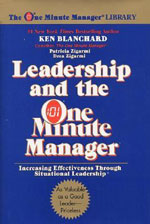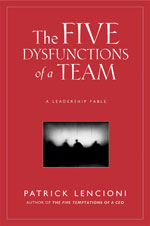 To create success in sales or to accomplish anything worthwhile in life, you don’t have to do the extraordinary.
To create success in sales or to accomplish anything worthwhile in life, you don’t have to do the extraordinary.
Do you agree or disagree with the above statement? Last week I discussed the importance of committing to the process of marginal gains and proposed that, to accomplish great things, you actually don’t have to do the extraordinary. However, you have to do something, and you have to start somewhere in order to make consecutive small steps of improvement.
This week, I’d like to dig a bit deeper and talk about why it’s important to focus on the process rather than the goal.
We all have things we want to achieve in life: completing an epic fitness challenge, getting into better shape, making President’s Club, building a successful business, writing a book, and so on. The path to achieving these objectives starts by setting a specific and actionable goal. I used to focus mainly on setting goals for my career, health, and other areas, but I did not put much focus or emphasis on the actual process of achieving those goals. What I’ve come to realize recently is this: when it comes to making progress toward achieving my goals, there is a much better way of doing things than simple goal setting. It all comes down to the difference between focusing on an end goal and focusing on a process.
Let me explain. What’s the difference between goals and a process?
- If you are a writer, you might want to write a book. Your goal is to complete your book, and your process is the writing schedule you regularly adhere to. I believe everyone should write a book. Why? Because everyone has a story the world needs to hear! Anyone who has written a book will tell you that the initial idea and goal seem daunting. However, if you commit to just writing and writing regularly, you will eventually have the content you need to put your book together. My process looked like writing a blog post every week for an entire year—after 52 weeks, I had more than enough material for my book.
- If you’re a runner, your goal may be to run a marathon. Your process is your training schedule for the next month.
- If you’re a salesperson at ConMed, your goal is to get to President’s Club. Your process is your daily sales method (we at ConMed refer to that as our Standard Model Day).
So we see that we can divide the journey to achievement into two approaches: goal orientation and process orientation. When we say people are goal oriented, we are insinuating that their number one priority is achieving the goal—and goal-oriented people look for the fastest way to get there. When we have this perspective, we see the path toward our goal as more of a hindrance than a help—it’s just something that gets in the way of our hitting the target.
In contrast, someone who is process orientated still has goals, but they pay a great deal more attention to the process itself. Process-oriented people actually get as much or more enjoyment from the journey to the goal as from the goal itself. I would like to convince you that this process-focused perspective is a healthier attitude, for most people spend far more time involved in the process of achieving goals than they do actually achieving them. Those who are only goal orientated tend to always be waiting for life to happen.
In summary, let’s commit to a process, not to a goal!
Choosing a goal puts a huge burden on our shoulders. Can you imagine if I had made it my goal to write two books this year? Just writing that sentence stresses me out. However, dedicating two hours per week to write this blog is definitely manageable. And, who knows? Maybe this blog post will become a chapter in my next book.
We do this to ourselves all the time: we place unnecessary stress on ourselves to lose weight, achieve a personal goal, or succeed in business and sales. Instead, we can keep things simple and reduce stress by focusing on sticking to the schedule and daily process rather than worrying about the big, monumental, life-changing goals.
When you focus on the process instead of the goal, you can enjoy the present moment and improve at the same time.
Sounds simple and logical, right? So why is this principle so hard to follow?
When I watched my children as they were learning how to walk, I noticed they were so very diligent about it. The fact that they fell over and over did not deter them from getting back up and trying again. But what would have happened if, every time they fell, I got angry and yelled at them, shaming them for falling down? It is likely that my children would have become fearful of trying to walk—and their learning to walk would have been significantly delayed.
I’ve never seen a parent do this to a child, but I have seen many people (including me!) do this to themselves.
This about what you say to yourself when you contemplate doing something new, like deciding to run a marathon, go back to school, lose weight, or achieve a business/sales objective.
Is this you?
- What if I fail?
- What if I make a fool of myself?
- What will people think of me if I don’t do well?
Or is this you?
- How exciting—a new challenge!
- I’m going to enjoy giving it my all!
- I just love learning, trying, and experiencing new things!
Goals can provide direction and even push you forward in the short term, but, in the end, a well-designed and executed process will always win.
Having a process is what matters. Committing to the process is what makes the difference.
I hope I’ve convinced you that you should commit to a process instead of solely focusing on an end goal. Next week I’ll discuss how to put this into practice—please come back and visit!


















thanks for the insightful blog this week, really made me think about my goals and whether or not I’m focusing on my process to get there
Pingback: Digging into the Process